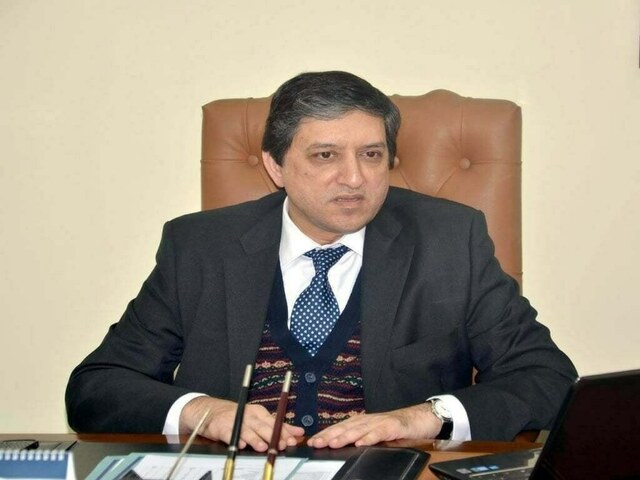ISLAMABAD: The Senate Standing Committee on Finance and Revenue, Wednesday, endorsed a proposal of the business community for not extending sales tax exemption in erstwhile tribal areas beyond June 30, 2025.
The sales tax exemption to erstwhile tribal areas would expire on June 30, 2025.
Chairman of the committee Saleem Mandviwalla was of the view that the formal sectors such as steel, ghee/ cooking oil and others have disadvantageous position due to this exemption. “We are well aware of the issue and taken the decision and we will make recommendation,” he added.
The committee met here on Wednesday to initiate for pre-budget 2025-26 consultations with stakeholders including Federation of Pakistan Chamber of Commerce and Industry (FPCCI), Chambers and Associations.
Jawed Bilwani, president Karachi Chamber of Commerce and Industry (KCCI) highlighted the special tax regime in the ex-FATA region and pointed out that a major portion of tea imports is routed through this region due to the significantly lower taxes. He also highlighted the issue of low duties and taxes on the raw materials of the plastic industry, particularly polyethylene for manufacturers. He reiterated that manufacturers import more raw materials due to these low taxes and then sell them at higher prices.
Moreover, he echoed his concerns about the refund of sales tax after nine months despite the Federal Board of Revenue (FBR)’s claims of refunds within 72 hours. He stated that the late refunds and advance taxes have increased the cost of doing business manifold.
Mandviwalla stated that the FBR had admitted before the committee the 72-hour refund policy of sales tax. The committee decided to take up the matter in the upcoming budget meetings.
Exporters recommended to reinstating the zero-rating of local supplied to registered exporters under export facilitation scheme (EFS) to ease down the liquidity pressure and smooth operation. Further, they proposed to consider zero-GST on utilities (power and gas) to exporters registered in the EFS to facilitate the exports ensuring availability of required/ adequate liquidity and smooth cash flow, to boost the confidence of exporters to enhance their exports and strengthen their business ties with the foreign counterparts to capture true business potential.
Business community stated that Finance Act 2024 shifted exporters from the Final Tax Regime (FTR) to the Income Tax Regime (NTR) which created significant compliance burden. It also proposed to restore the FTR for exporters to simplify on FBR audits, considering its limited capacity. This will enhance the ease of doing business and promote growth in documented sectors and support.
The Lahore and Gujranwala Chambers of Commerce and Industry raised the matter of advance tax on exports. They apprised that the State Bank charged one percent tax plus an additional one percent tax on remittances. They proposed the rationalisation of the said tax.
Furthermore, Sialkot Chamber of Commerce and Industry highlighted the expulsion of tribunals for matters in which sales tax exceeds up to Rs2 million and income tax up to Rs1 million, expressing concern over the lack of proper appellate forums for small taxpayers.
The Committee assured the chamber that it would take up the matter in the upcoming budget. Additionally, the Sialkot Chamber emphasised the need to cater to the growing number of young entrepreneurs, with around 600 to 700 new registrations recorded each year, highlighting the importance of supportive policies for this emerging business segment.
Additionally, the Rawalpindi Chamber of Commerce and Industry proposed a 15 percent GST in the upcoming budget to provide ease to the dying industry. President RCCI Usman Shaukat also proposed providing tax incentives to export-based industries upon completion of export targets, in addition to providing necessary financial facilities to small and medium enterprises.
The Islamabad Women Chamber of Commerce and Industry (IWCCI) urged the government to allocate dedicated funds for women entrepreneurs in the upcoming budget, emphasising the need to create a more supportive environment for women-led businesses. The chamber also called for the reduction of the existing Rs5 Crore revenue threshold for corporate women, arguing that the current limit poses a barrier to entry for many capable women entrepreneurs seeking to formalise and expand their businesses.
Paper and Stationery Association called for the withdrawal of taxes on stationery items. They stated that the federal government had promised in the previous year to eliminate the existing taxes on stationery items in the following budget cycle. The association urged the government to honour its commitment, stressing that these taxes should be withdrawn immediately to ensure affordability and accessibility of essential educational materials for students across the country.
President Faisalabad Chamber of Commerce said that Information Technology (IT) is shifting to Turkey and UAE due to lack of gateway for payment abroad, which would directly hit the exports remittances.
The committee was informed that 30 IT companies from Faisalabad had shifted to Turkey and UAE so far. This would directly impact the IT exports remittances and would not come to the country, he added. The country is celebrating $2.4 billion IT exports, said the president, adding that currently, the potential is $10 billion and can be increased to $20 billion, if all these issues were resolved.
In attendance were senators, Sherry Rehman, Anusha Rahman Ahmad Khan, Fesal Vawda and representatives of Rawalpindi, Karachi, Sialkot, Faisalabad and Lahore Chamber of Commerce and Industry.
Copyright Business Recorder, 2025


